Consider the situation shown in . The wire PQ has a negligible resistance and is made to slide on the three rails with a constant speed of 5cms−1 . Find the current in the 10Ω resistor when the switch S is thrown to (a) the middle rail (b) the bottom rail.
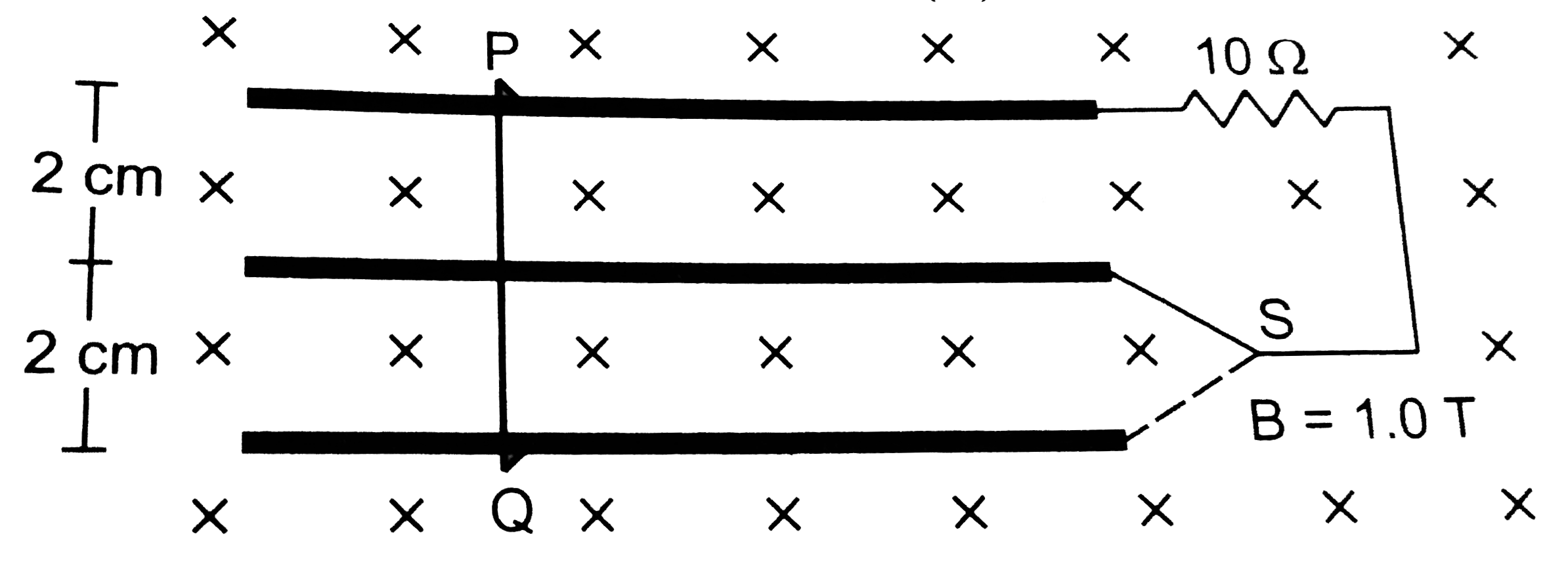
zero
2 mA
1 mA
None of these
The correct Answer is:D
Step by step video & image solution for Consider the situation shown in . The wire PQ has a negligible resistance and is made to slide on the three rails with a constant speed of 5 cm s^(-1) . Find the current in the 10 Omega resistor when the switch S is thrown to (a) the middle rail (b) the bottom rail. by Physics experts to help you in doubts & scoring excellent marks in Class 12 exams.
Updated on:21/07/2023Topper's Solved these Questions
- MISCELLANEOUS VOLUME 5BOOK - CENGAGE PHYSICS ENGLISHCHAPTER - MISCELLANEOUS VOLUME 5EXERCISE - Integer
12 Videos
- MISCELLANEOUS VOLUME 5BOOK - CENGAGE PHYSICS ENGLISHCHAPTER - MISCELLANEOUS VOLUME 5EXERCISE - Multiple Correct
34 Videos
- MISCELLANEOUS VOLUME 3BOOK - CENGAGE PHYSICS ENGLISHCHAPTER - MISCELLANEOUS VOLUME 3EXERCISE - True and False
3 Videos
- NUCLEAR PHYSICSBOOK - CENGAGE PHYSICS ENGLISHCHAPTER - NUCLEAR PHYSICSEXERCISE - ddp.5.5
14 Videos
Similar Questions
Consider the situation shown in . The wires P1Q1 and P2Q2 are made to slide on the rails with the same speed 5cms−1. Find the electric current in the 19Ω resistorif (a) both the wires move towards right and (b) if P1Q1 moves towards left but P2Q2 moves towards right.
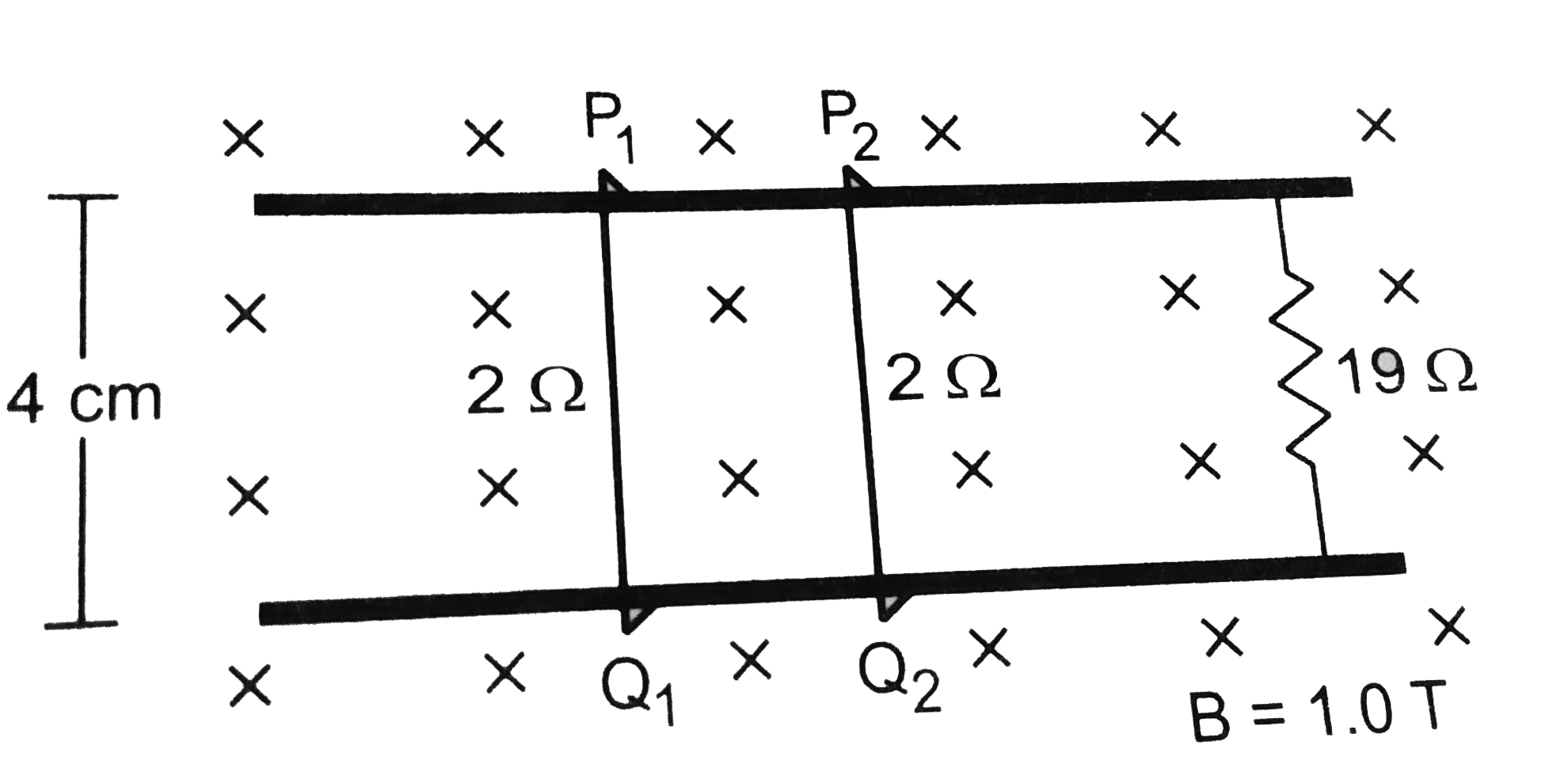
View SolutionConsider the circuit shown in figure.Find the current through the10(Ω)resistor when the switch S is (a)open (b)closed .
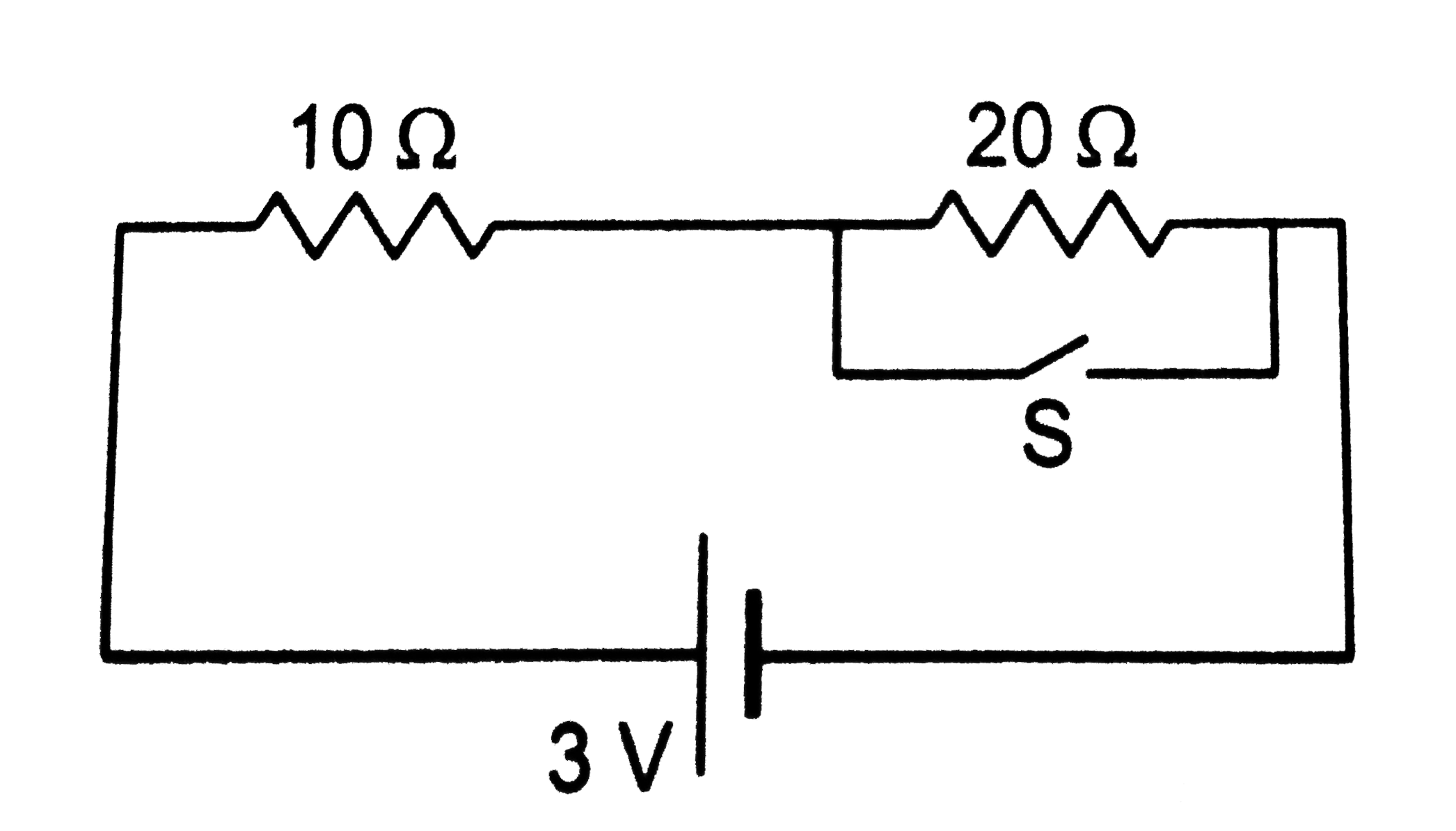
View SolutionConsider the situation shown in figure. The wires P1Q1 and P2Q2 are made to slide on the rails with the same speed 5cm/sec . Find the electric current in the 19Ω resistor if (a) both the wires move towards right and (b) if P 1Q1 moves towards left but P2Q2 moves towards right.
View SolutionConsider the situation shown Fig. There present a magnetic field B = 1 T which is perpendicular to plane of paper. The wire P2,Q2 are made to slide on the rails with the same speed 5cm/s. Find the electric current in the 19(Ω) resistance if
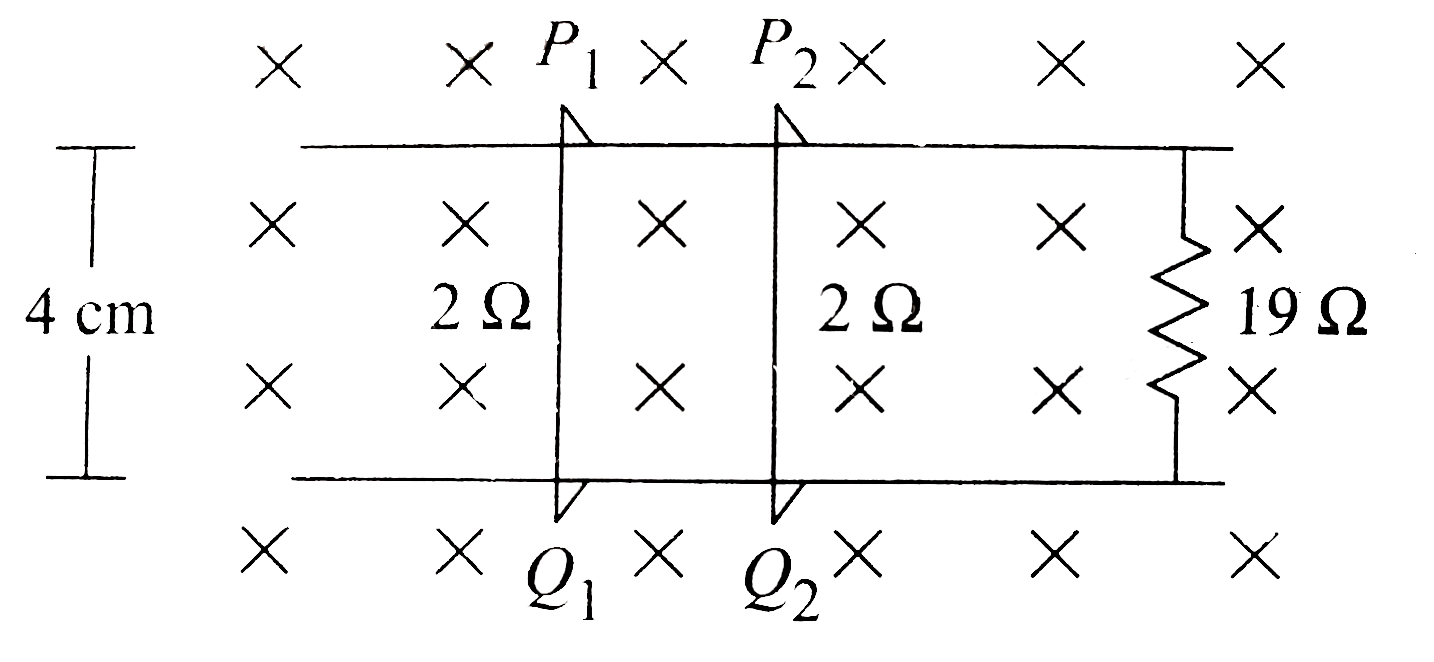
Both the wires move towards right
View SolutionIn the figure shown , the wires P1Q1 and P2Q2 are made to slide on the rails with same speed of 5cms−1. In this region a magnetic field of 1T exists. The electric current in the 9Ω resistance is :
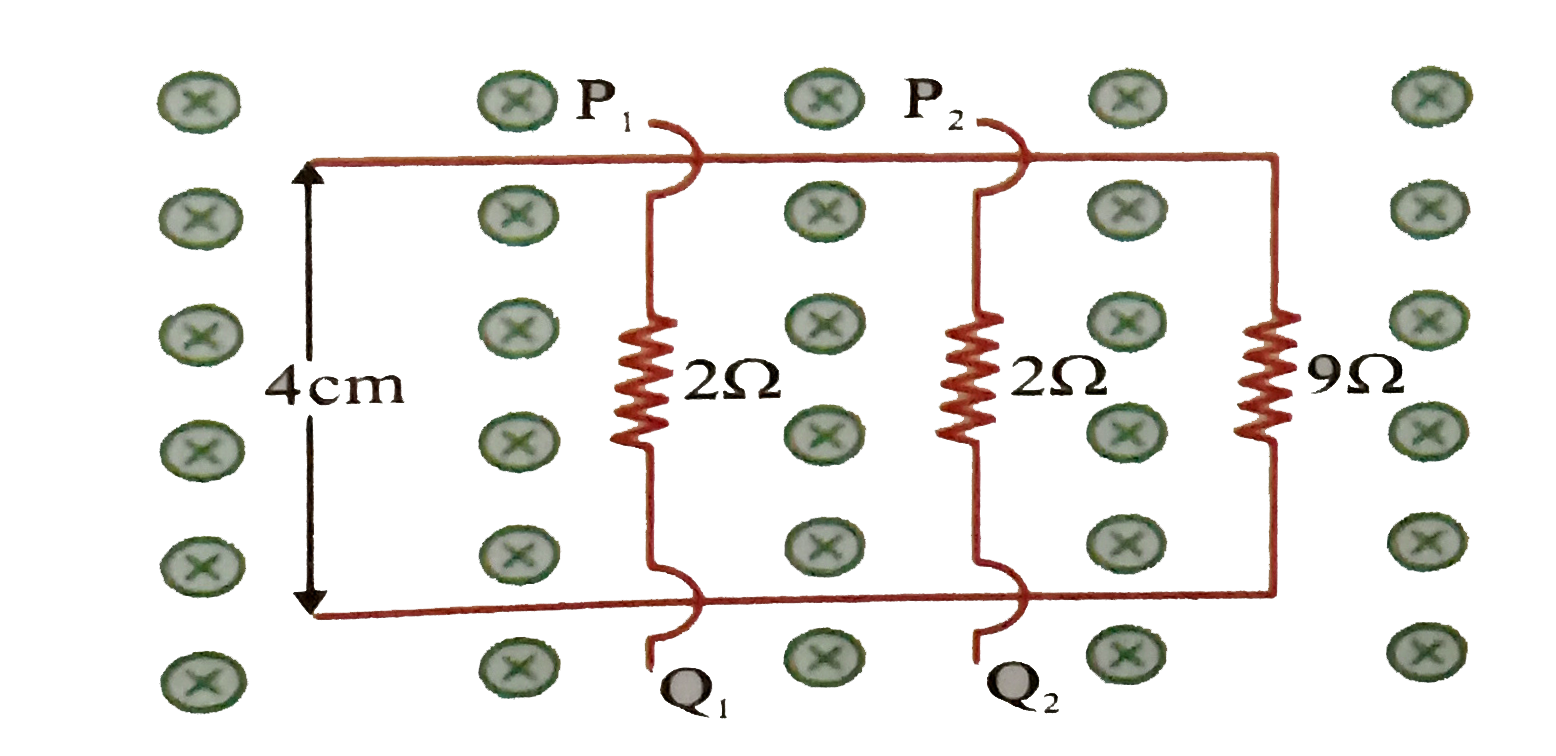
View Solution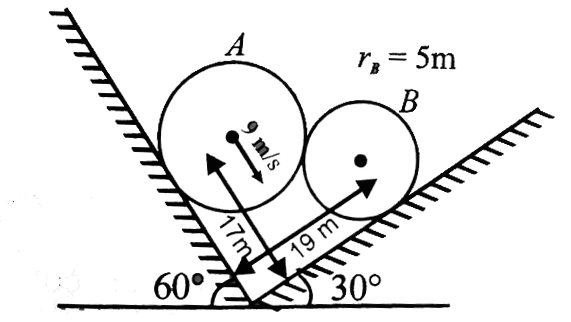
System is shown in the figure. Velocity of sphere A is 9 ms. Find the speed of sphere B.
View SolutionConsider the situation shown in . The wire AB is slid on the fixed rails rails with a constant velocity. If the wire AB is replaced by a semicircular wire, the magnitude of the induced current will

View SolutionIn the diagram shown, the wires P1Q1 and P2Q2 each of length 40cm are made to slide on the rails with same speed of 5m/s. In this region a magnetic field of 1T exists. The electric current in 9kΩ resistor is
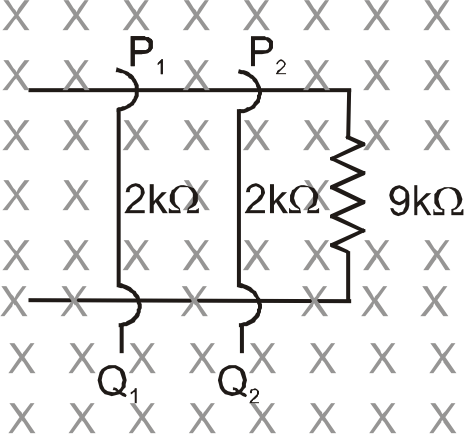
View SolutionConsider the situation shown in . The wire PQ has mass m, resistance r and can slide on the smooth, horizontal parallel rails separted by a distance l. The resistance of the rails is negligible. A uniform magnetic field B exists in the rectangualr region and a resistance R connects the rails outsided the field region At t= 0, the wire PQ is puched towards right with a speed v0. find (a) the current in the loop at an instant when the speed of the wire PQ is v, (b) the acceleration of the wire at this instatn, (c ) the velocity v as a function of x and (d) the maximum distance the wire will move.
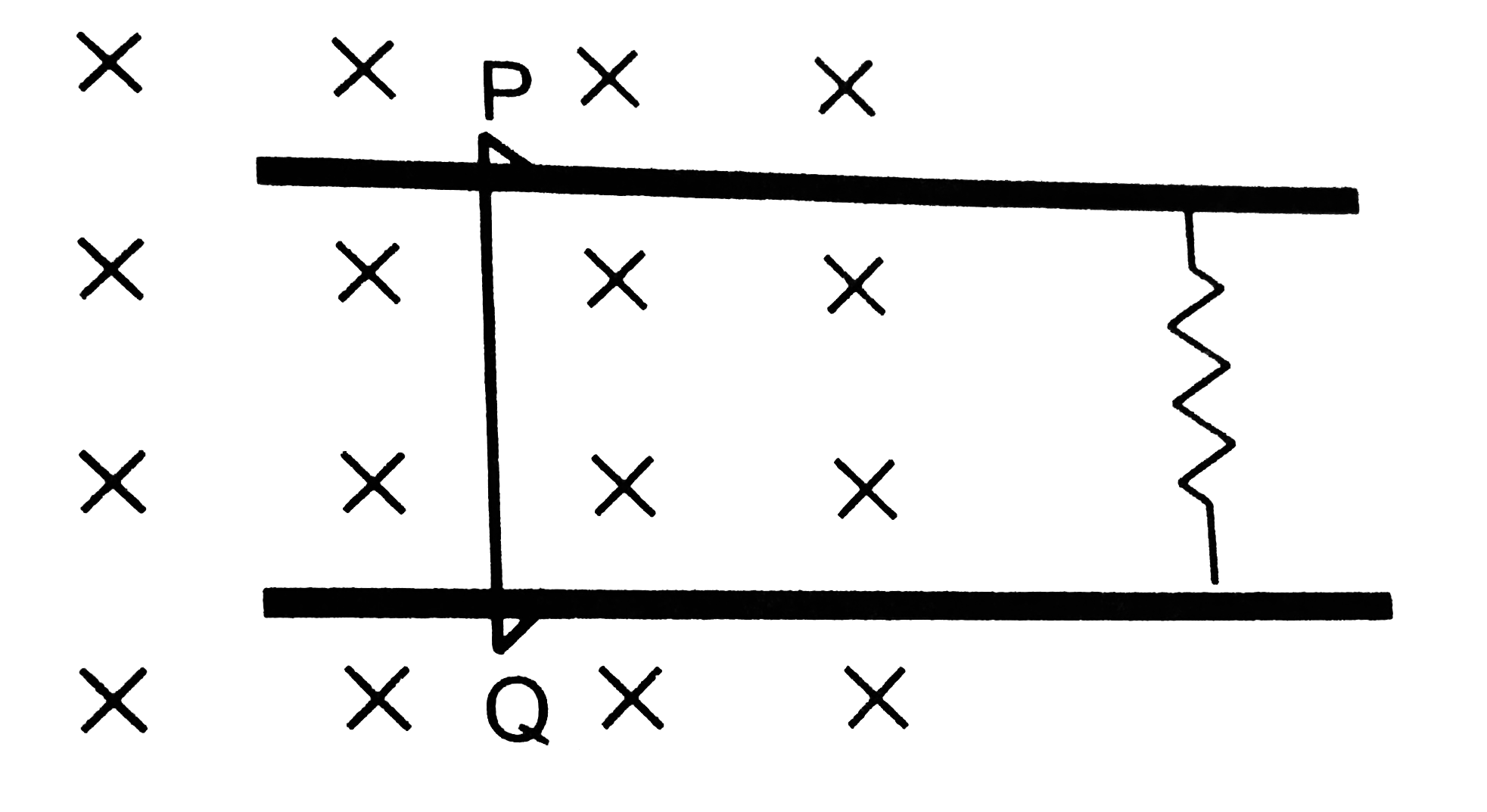
View SolutionConsider the situation shown in . The wire PQ has mass m, resistance r and can slide on the smooth, horizontal parallel rails separted by a distance l. The resistance of the rails is negligible. A uniform magnetic field B exists in the rectangualr region and a resistance R connects the rails outsided the field region At t= 0, the wire PQ is puched towards right with a speed v0. find (a) the current in the loop at an instant when the speed of the wire PQ is v, (b) the acceleration of the wire at this instatn, (c ) the velocity v as a function of x and (d) the maximum distance the wire will move.
(##HCV_VOL2_C38_E01_073_Q01##)
View Solution

